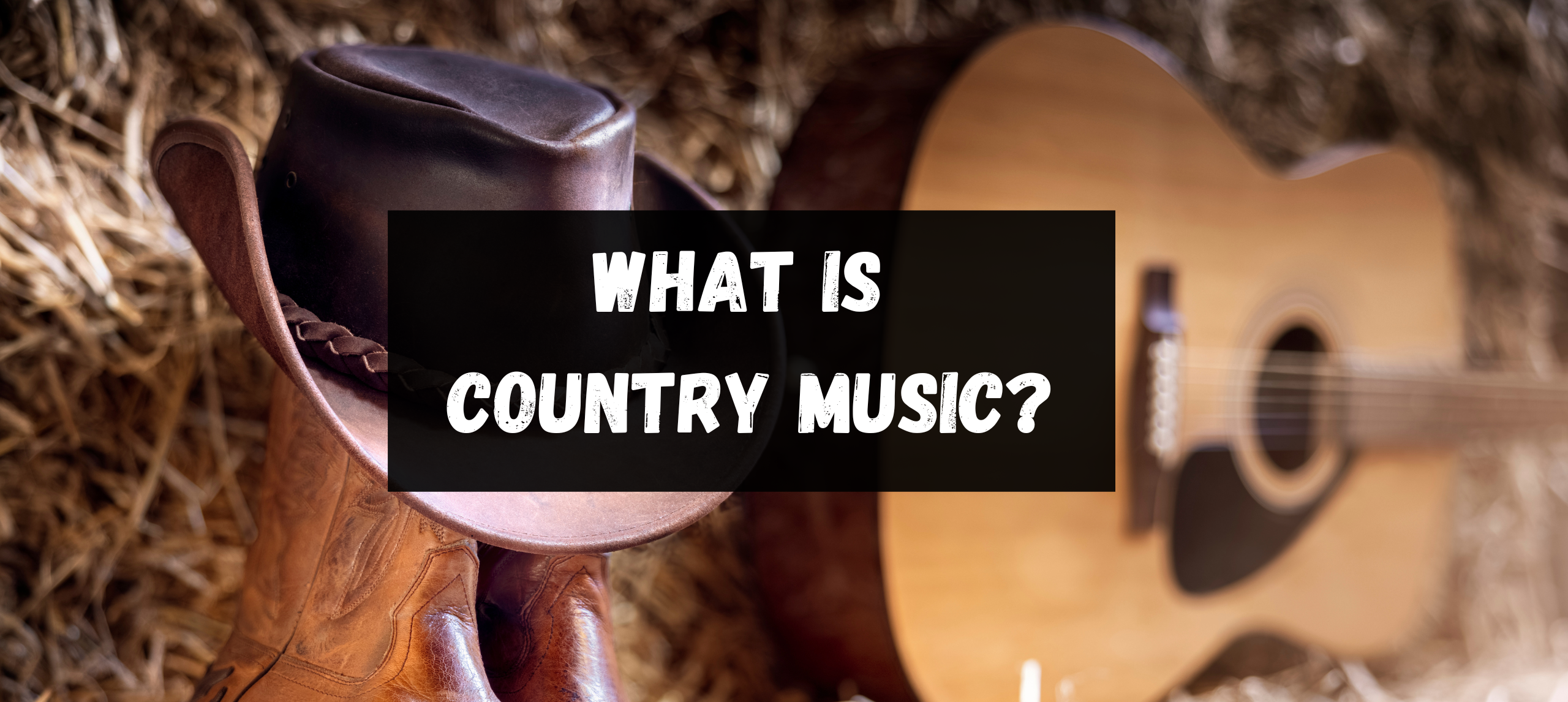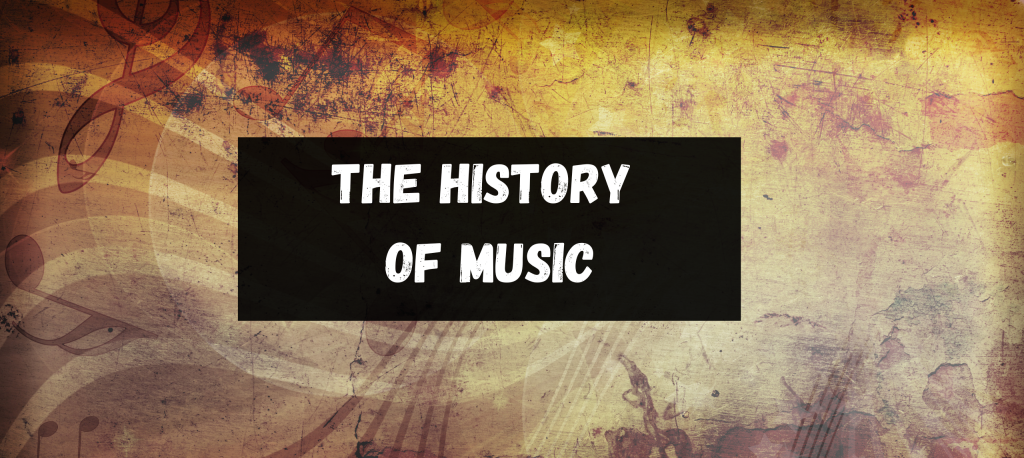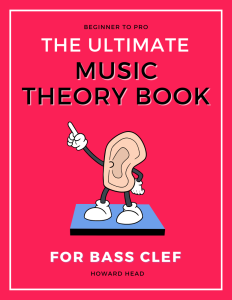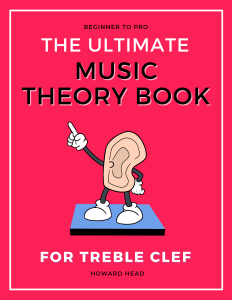August 16, 2023
Howard
Introduction to Country Music
Country music is a genre that originated in the rural regions of the Southern United States, fusing folk, blues, and Western musical traditions. Characterised by its strong narrative lyrics, acoustic instrumentation, and distinctive twang, it tells stories of love, loss, and everyday life. Over time, country music has evolved to include various subgenres, extending its reach and influence far beyond its American roots, resonating with audiences worldwide, and forming in Britain.
Stay with us as we take a musical journey, tracing the history of country music, introducing the icons who have shaped it, and peering into its promising future. From the strums of the banjo to the stories told through song, this article promises to unravel the fascinating world of country music, even revealing its surprising influences on some of Britain’s most beloved modern tunes. So whether you’re a die-hard country fan or simply intrigued by this multifaceted genre, you will want to see what’s ahead.
Country Music’s Historical Background
Country music’s roots run deep, stretching back to the early 20th century in the rural Southern United States. It emerged from a rich tapestry of musical traditions, including folk, blues, gospel, and Western swing. In its infancy, country music was played on string instruments like the banjo and fiddle, becoming a prominent voice for the working class, narrating their struggles, triumphs, and way of life. Over the decades, it has grown and diversified, giving birth to various subgenres such as honky-tonk, bluegrass, and contemporary country, reflecting different aspects of the American experience.
Notable Influences: Notre Dame School & Others
Interestingly, some unexpected influences have touched country music’s historical evolution. Among them is the Notre Dame School, a remarkable group of composers from the 12th and 13th centuries whose development of rhythm and notation left a lasting imprint on Western music. This may seem an unlikely connection, yet the themes of storytelling and musical expression that permeated their work find resonance in country’s narrative-driven style. Other influences include African rhythms, Celtic ballads, and even British folk songs, weaving a complex and textured musical landscape.
Major Historical Milestones
Country music’s path through the 20th century is marked by significant milestones that have shaped its development. The Bristol Sessions of 1927, often referred to as the ‘Big Bang’ of country music, heralded the commercial recording of the genre. The rise of the Grand Ole Opry, a weekly radio show launched in 1925, provided a platform for country artists to reach a broader audience, cementing Nashville’s reputation as the ‘Country Music Capital.’ From Hank Williams’ emotive songwriting in the 1940s to Dolly Parton’s crossover success in the ’70s, the genre has continued to evolve, adapting to cultural shifts while retaining its core identity. Even in Britain, country music has found a dedicated audience, influenced by and influencing British pop and rock, with festivals and events celebrating this uniquely American yet universally relatable art form.
By understanding these critical aspects of country music’s history, we can appreciate the rich and multifaceted nature of a genre that has transcended its origins to become a global phenomenon. Whether in the lively strum of a banjo or the soulful lyrics of a love song, the echoes of history resonate in every note, connecting us across time and space.

Characteristics and Styles
Elements Defining Country Music
Country music is distinguished by its dynamic storytelling, often sharing tales of love, hardship, and the human condition. The country embraces simplicity and honesty that resonates deeply with listeners by utilising acoustic instruments such as the guitar, banjo, fiddle, and steel guitar. Its unique ‘twang’ or nasal vocal quality is often considered its hallmark, giving it a sound that is immediately recognisable.
Fusion with Other Genres: Crossovers & Controversies
The versatility of country music has led to exciting collaborations and fusions with other genres. From rock and pop to hip-hop, blending styles has generated critical acclaim and heated debate. These crossovers have expanded the country’s appeal, but not without controversy. Traditionalists have sometimes baulked at the erosion of the country’s ‘pure’ sound, while others celebrate its evolution. This tension between tradition and innovation has shaped the genre, even sparking discussions here in Britain, where country-infused pop hits have graced the charts.
5 Distinctive Features of Country Sound
- Narrative Lyrics: Country songs often tell a story, weaving intricate tales of love, loss, or redemption. The lyrics resonate as universal truths, connecting listeners through shared human experiences.
- Acoustic Instruments: The country’s sound is rooted in guitar, banjo, and fiddle instruments. These acoustic elements lend an earthy, authentic texture that sets it apart.
- Twang: That distinctive nasal quality known as ‘twang’ is a defining characteristic of country vocals. It adds a unique flavour that’s synonymous with the genre.
- Simple Arrangements: Unlike some more heavily produced music styles, country often relies on simple, straightforward arrangements. This minimalism allows the emotion of the song to shine through.
- Cultural Themes: Whether it’s a patriotic ballad or a song about rural life, country music often draws upon cultural themes, reflecting societal values and ways of life.
These characteristics and styles capture the essence of country music, a genre rich in tradition yet ever-evolving. Its ability to adapt, innovate, blend with other genres, and create new sounds has cemented its place in the global music scene. From the streets of Nashville to the clubs of London, country music continues to inspire and enthral, a testament to its universal appeal and enduring relevance. Whether you’re a newcomer to this musical world or a lifelong fan, the multifaceted nature of country music offers something for every listener, inviting us all to explore its depth and diversity.
Notable Artists and Examples
Country music has been graced by talented artists whose voices and songs have shaped the genre. Names like Garth Brooks, whose electric performances have filled arenas worldwide, and Willie Nelson’s unmistakable braids and unique vocal style are synonymous with the country’s broad appeal. Legends like Johnny Cash, Dolly Parton, and Reba McEntire have transcended regional boundaries, striking chords with fans from Nashville to Newcastle. Their contributions, not only in music but in their influence on fashion and culture, have left an indelible mark on the global musical landscape.
9 Iconic Country Music Tracks (Including pieces by Carrie Underwood, Johnny Cash, etc.)
- “Before He Cheats” by Carrie Underwood: A modern anthem of female empowerment that resonated far beyond the country scene.
- “Mammas Don’t Let Your Babies Grow Up to Be Cowboys” by Waylon Jennings and Willie Nelson: A classic duet that speaks to the cowboy mythos.
- “Folsom Prison Blues” by Johnny Cash: A seminal piece reflecting Cash’s deep empathy for the disenfranchised.
- “Take Me Home, Country Roads” by John Denver: An ode to rural life that’s become an international sing-along favourite.
- “Tennessee Whiskey” by Chris Stapleton: A soulful rendition that showcases the emotional depth of country music.
- “Friends in Low Places” by Garth Brooks: An upbeat, relatable track that’s become a country staple.
- “Lyin’ Eyes” by The Eagles: A song that beautifully encapsulates the storytelling aspect of country music.
- “I’m So Lonesome I Could Cry” by Hank Williams: A melancholy classic that has influenced countless artists.
- “I Am a Man of Constant Sorrow” by Soggy Bottom Boys: A track that hearkens back to traditional country themes, popularised by the film “O Brother, Where Art Thou?”
Influential New Trendsetters
Country music’s vibrant landscape continues to evolve, with a new generation of artists breaking barriers and pushing the genre into exciting new directions. Artists like Kacey Musgraves challenge traditional norms and expand the country’s sonic boundaries. British country duos such as The Shires are making waves on both sides of the Atlantic, demonstrating that country music’s influence knows no borders. These new trendsetters and music education platforms featuring top country instructors ensure that the country’s rich heritage is preserved while its future remains bright and innovative.
This section paints a vivid picture of the icons and influencers of country music, from timeless classics to modern masterpieces. Whether you are seeking a nostalgic trip down memory lane or eager to discover what’s new and groundbreaking, country music’s vast and varied repertoire offers a rich tapestry of sound and emotion that continues to captivate audiences worldwide.
Learning Country Music
Embarking on a journey into country music can be a thrilling and rewarding experience. Whether you wish to strum a guitar like Willie Nelson or sing with the emotion of Dolly Parton, the first step is often embracing the music itself. Listening to the classics, attending live concerts, or even exploring British interpretations of the genre can spark your creativity. Then, you may find yourself selecting an instrument or honing your vocal skills, immersing yourself in this fascinating genre’s rich heritage and contemporary landscapes. If that is learning the bass guitar, I can certainly help!
Tips and Techniques for Singing and Playing Country Music
Country music’s distinct style demands specific attention to certain tips and techniques:
- Vocal Twang: Practising the nasal quality or ‘twang’ can add authenticity to your country’s singing.
- Storytelling: Focus on conveying the emotion and narrative within the lyrics, a hallmark of country music.
- Instrument Techniques: Mastering techniques like fingerpicking or slide guitar can add depth to your playing.
- Genre Fusion: Be bold and experiment and blend country with other genres, reflecting the evolution of modern country music.
These principles, combined with persistence and passion, can unlock your potential as a country musician, whether performing on stage or enjoying a jam session at home.
The Impact of Country Music on Popular Culture
Country music’s reach extends beyond its genre, influencing various musical styles. Its storytelling tradition, melodic richness, and distinctive instrumental techniques have been embraced by artists across the spectrum. Even in genres as seemingly disparate as heavy metal, traces of the country’s acoustic heritage can be found. Highlife music, a genre rooted in West Africa, has similarly absorbed elements of the country’s rhythm and harmony. These cross-genre connections exemplify country music’s universal appeal and its ability to resonate across cultural boundaries.
Role in Mainstream Media and Popular Articles
Country music’s impact is also keenly felt in mainstream media, from film soundtracks to television programmes. Its songs narrate stories of love, loss, and the human condition, fitting them into visual narratives. Popular articles and magazines in the UK and beyond often feature country music artists, recognising their contributions to the broader music landscape.
Country Music Magazines UK
- Maverick Magazine: This was one of the UK’s premier country music magazines, covering both British and international country music.
- Country Music Magazine: This magazine provided in-depth interviews, reviews, news, and features related to the country music world.
- Up Country Magazine: While more centered on line dancing, this magazine also touched upon country music news, events, and artist features.
- Country Music People: An established monthly that featured reviews, news, and interviews about country music.
- UKCountryRadio.com: While primarily a radio station, they also had an online presence with features, interviews, and news about country music artists and events in the UK.
The press also regularly covers country festivals and awards ceremonies, reflecting the genre’s enduring popularity and status as a significant cultural phenomenon.
Country Music Festivals UK:
- C2C: Country to Country: One of the biggest country music festivals in the UK, C2C is held annually in London, Glasgow, and Dublin. The festival has seen performances from some of the biggest names in country music, both from the US and the UK.
- The Long Road Festival: Located in Leicestershire, this festival boasts a great line-up of country, Americana, and roots artists. It also offers attendees an immersive experience with authentic American food, themed stages, and a warm atmosphere.
- Black Deer Festival: Held in Kent, this festival is a celebration of Americana and country music. Apart from music, it showcases all aspects of the culture, including food and custom motorcycles.
- Nashville Meets London: As the name suggests, this festival is all about bridging Nashville and London, two significant hubs of country music. Held in London, it has been a platform for both established and upcoming artists.
- Buckle & Boots Country Festival: Located in Manchester, this festival has a more grassroots feel and is dedicated to supporting and showcasing artists from the UK country scene alongside international artists.
- Millport Country Music Festival: Taking place on the Isle of Cumbrae in Scotland, this festival offers a mix of established and emerging country music talent.
- British Country Music Festival (TBCMF): Located in Blackpool, this festival mainly highlights British country artists.
Of course, these are just suggestions, and there are many more festivals and music events out there to explore!
Connection to Broader Cultural Movements and Trends
Country music’s roots in rural life and its themes of authenticity and community have made it a powerful symbol for broader cultural movements. Its embrace of traditional values, coupled with a willingness to evolve, reflects societal shifts and trends. The rise of contemporary British country artists and festivals attests to the genre’s adaptability and continued relevance. The country’s influence is also palpable in fashion, with cowboy boots, hats, and Western-inspired attire recurring appearances on runways and high streets.
Moreover, country music has played a role in social and political discourse, providing a voice for the marginalised and a platform for dialogue and change. Songs addressing social issues or reflecting national sentiment have transcended entertainment, becoming anthems for particular times and causes.
In conclusion, the impact of country music on popular culture is profound and pervasive. Its influence on various music genres, its prominent role in media, and its connection to broader cultural trends highlight its significance as a musical style and a social and cultural force. As British audiences continue to engage with country music, its ability to adapt, inspire, and unify ensures its lasting relevance in a rapidly changing world. Whether in a tiny countryside pub or a bustling London theatre, the strains of country music echo, drawing people together and enriching the tapestry of our shared cultural experience.
Country Music in the Global Context
In an increasingly interconnected world, country music transcends its American roots and finds resonance in various cultures. The globalisation of country music has led to exciting collaborations, novel interpretations, and a broader fan base. British country music exemplifies this global trend with its unique blend of local tradition and American influence. From country-inspired pop hits in Asia to African highlife music infused with country tones, the genre’s reach continually expands. The question of authenticity versus adaptation has become a stimulating debate, reflecting the tension and opportunity inherent in a global perspective.
Conclusion
In exploring the multifaceted world of country music, we have journeyed through its historical origins, dissected its defining characteristics, celebrated its iconic artists, and delved into its impact on popular culture. From its influence, country music’s rich tapestry of sounds, stories, and emotions provides an endless fascination.
In closing, country music is more than just a genre; it’s a living, breathing entity that continues to grow, challenge, and inspire. Its universal themes, distinctive sound, and cultural significance make it a compelling subject for music enthusiasts and anyone interested in the human experience. As we continue to connect with country music in Britain and beyond, we are reminded of the power of music to unite, heal, and enrich our lives. Whether a seasoned fan or a curious newcomer, the world of country music awaits your exploration, promising a journey filled with discovery, joy, and soulful connection.
Glance Your Peepers Over These:

Howard Head
I turn confused bass enthusiasts into bass gods through a simple and logical process.

















